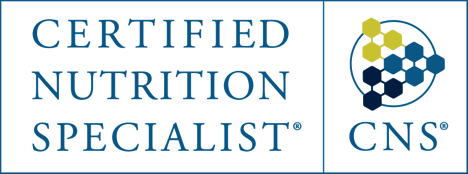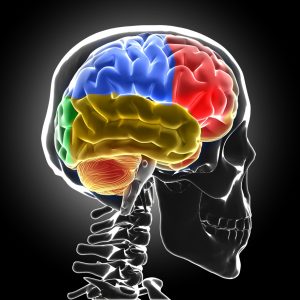Roni Enten Vissoker PhD
CNS, LDN
Individualized Biomedical Nutritionist


Home » How optimizing nutrition impacts neurological health in autism and other disorders
 I am often asked by families I work with: if autism is a neurological disorder, can nutrition actually make a difference? The answer is yes, because simply put: the brain and body are connected – and both need nutrients to work optimally. Optimal nutrition can help improve brain health and function.
I am often asked by families I work with: if autism is a neurological disorder, can nutrition actually make a difference? The answer is yes, because simply put: the brain and body are connected – and both need nutrients to work optimally. Optimal nutrition can help improve brain health and function.
There is a common misconception that neurological disorders are a static conditions that cannot be changed or improved; that the brain is a separate entity all its own. In fact, the latest research tells us that lifestyle factors can have a major impact on neurological health and wellness, and that improving lifestyle can potentially help to shift the symptoms of a range of neurological conditions.
Although most neurological disorders develop gradually over time before we are even aware, and their exact causes vary, the impact of environment factors can compound genetic and epigenetic causes. Environmental factors may include prenatal inflammation (in the uterus of the mother), viral and bacterial infections, malnutrition or suboptimal nutrition, an imbalanced gut microbiome, lead and/or other heavy metal toxicity, and even dietary causes such as gluten sensitivity (as in the case of celiac disease).
In addition, infection, environmental toxins and stress, can also exacerbate inflammation in the brain (aka neuro-inflammation), as can a poor diet and an unbalanced gut microbiome. Neurological problems amay also start in another body system that interacts with the nervous system, such as the immune system, and set off an inflammatory response that affects the brain.
The health effects of neuro-inflammation
Neuro-inflammation has garnered increasing attention due to its profound influence on neurological health. The process itself involves the activation of immune cells, such as microglia and astrocytes, which are part of the brain’s immune response system. These cells release signaling molecules known as cytokines (in response to injury or pathogens), which start a cascade of inflammation. While acute neuro-inflammation is protective, ongoing activation of these cells can lead to an undesired cycle of sustained inflammation, which is bad for overall health.
Neuro-inflammation is a common root cause of numerous neurological conditions and symptoms, many of which are also present in ASD. It contributes to the degeneration of neurons and disrupts the delicate balance of neurotransmitters, leading to cognitive and motor impairments and has been linked to various neurological disorders, including Alzheimer’s disease, Parkinson’s disease, multiple sclerosis, and autism.
Chronic neuro-inflammation can also accelerate cognitive decline and impair memory and learning processes. The release of pro-inflammatory cytokines can interfere with synaptic plasticity—the brain’s ability to strengthen or weaken connections between neurons—which is essential for memory formation.
Finally, evidence also suggests a connection between neuro-inflammation and mood disorders such as depression and anxiety, since it affects the production of neurotransmitters like serotonin and dopamine, which play a crucial role in regulating mood and emotions.
How nutrition can help reduce neuro-inflammation
Polyphenols
As it turns out, one of the easiest and most simple ways to impact inflammatory processes in the body is by eating a whole foods diet. One of the key benefits of eating whole foods is ingestion of polyphenols, a diverse group of plant compounds found in foods like green tea, berries, dark chocolate, and many fruits and vegetables.
Known for their antioxidant and anti-inflammatory properties, polyphenols impact neuro-inflammation by modulating specific signaling pathways within cells such as the NF-κB Pathway, and the MAPK Pathway (Mitogen-Activated Protein Kinase). They can also influence gene expression through epigenetic mechanisms, and can modify the structure of DNA and histones, impacting how genes are turned on or off. This modulation of can affect inflammatory responses and contribute to neuroprotection.
Special diets and removal of offensive foods
Changing larger dietary patterns (aka special diets) can also have a profound impact on neuro-inflammation. One evidence-based example is the Ketogenic diet. This pattern has been shown to be anti-inflammatory as seen in preclinical experimental models of neurological disorders including multiple sclerosis, Parkinson’s disease, pain, and spinal cord injury. Researchers suspect that ketones bodies, as well as caloric restriction, polyunsaturated fatty acids and changes in gut microbiota may be involved in the modulation of inflammation by the ketogenic diet.
Anti-inflammatory nutraceuticals
While there is no replacing a healthy diet, supplementing nutraceuticals can provide even greater doses of the key nutrients that help reduce inflammation, including polyphenols, antioxidant vitamins and anti-inflammatory compounds such as Omega 3 fatty acids. This can be especially helpful for food selective individuals, common in autism, and those who struggle to eat a balanced diet.
Conclusion
Diet and nutrition have a profound role to play when it comes to supporting neurological health. Incorporating polyphenol-rich foods, special diets and nutraceuticals into one’s diet are powerful ways to manage neuro-inflammation and preserve cognitive well-being.
References
Hughes HK, Mills Ko E, Rose D, Ashwood P. Immune Dysfunction and Autoimmunity as Pathological Mechanisms in Autism Spectrum Disorders. Front Cell Neurosci. 2018 Nov 13;12:405. doi: 10.3389/fncel.2018.00405. PMID: 30483058; PMCID: PMC6242891.
Aggarwal V, Mehndiratta MM, Wasay M, Garg D. Environmental Toxins and Brain: Life on Earth is in Danger. Ann Indian Acad Neurol. 2022 Sep;25(Suppl 1):S15-S21. doi: 10.4103/aian.aian_169_22. Epub 2022 Sep 5. PMID: 36213101; PMCID: PMC9540824.
Bokobza C, Van Steenwinckel J, Mani S, Mezger V, Fleiss B, Gressens P. Neuroinflammation in preterm babies and autism spectrum disorders. Pediatr Res. 2019 Jan;85(2):155-165. doi: 10.1038/s41390-018-0208-4. Epub 2018 Nov 16. PMID: 30446768.
Sookyong Koh, Nina Dupuis, Stéphane Auvin. Ketogenic diet and Neuroinflammation. Epilepsy Research, Volume 167, 2020.
Giuffrè M, Gazzin S, Zoratti C, Llido JP, Lanza G, Tiribelli C, Moretti R. Celiac Disease and Neurological Manifestations: From Gluten to Neuroinflammation. International Journal of Molecular Sciences. 2022; 23(24):15564. https://doi.org/10.3390/ijms232415564
Savino R, Medoro A, Ali S, Scapagnini G, Maes M, Davinelli S. The Emerging Role of Flavonoids in Autism Spectrum Disorder: A Systematic Review. J Clin Med. 2023 May 17;12(10):3520. doi: 10.3390/jcm12103520. PMID: 37240625; PMCID: PMC10219283.
Comments Off on How optimizing nutrition impacts neurological health in autism and other disorders